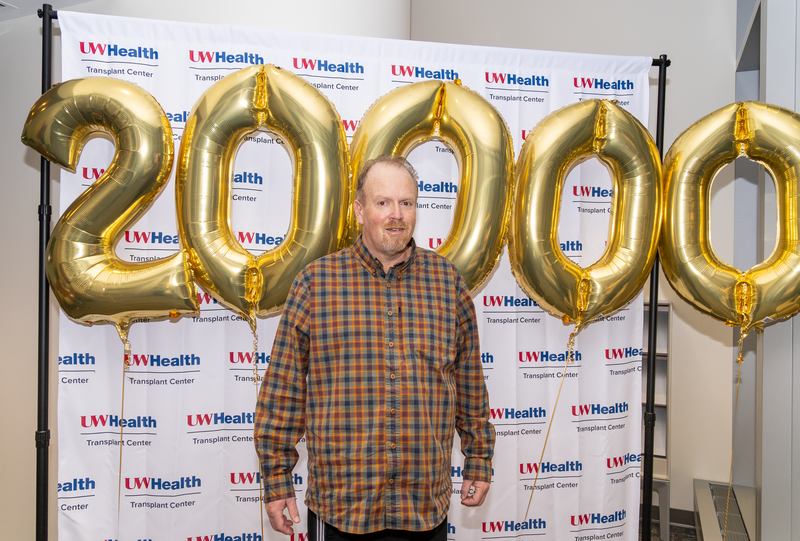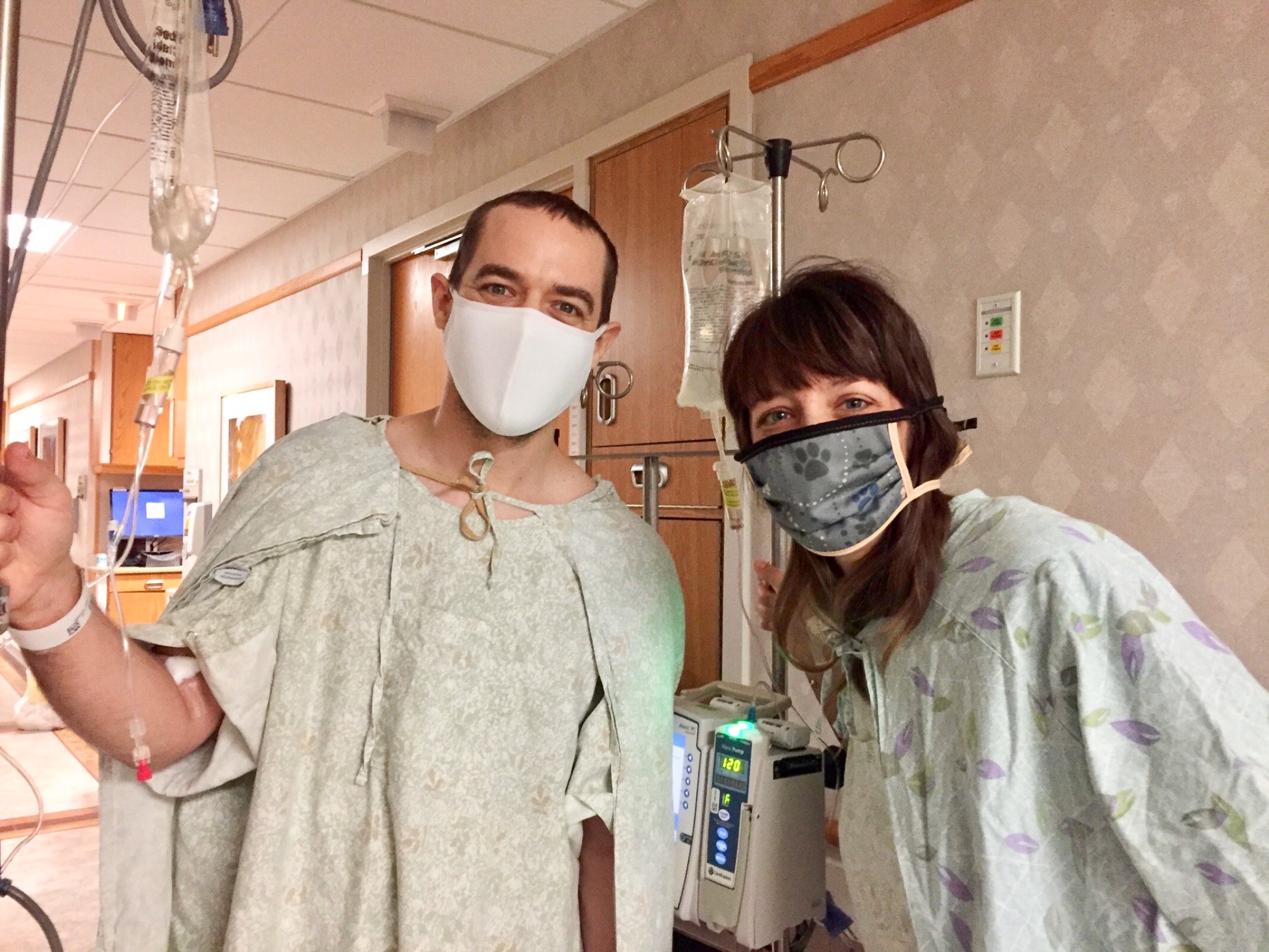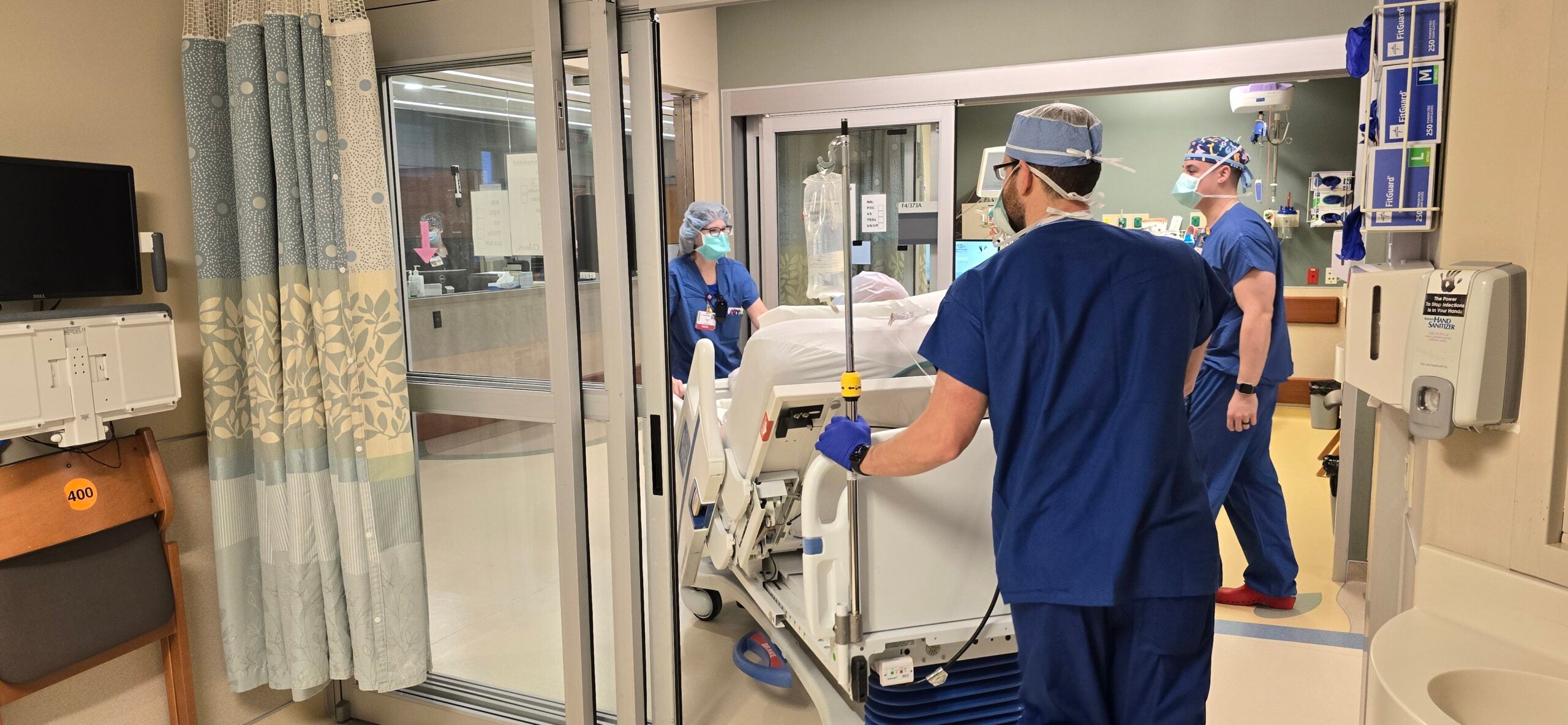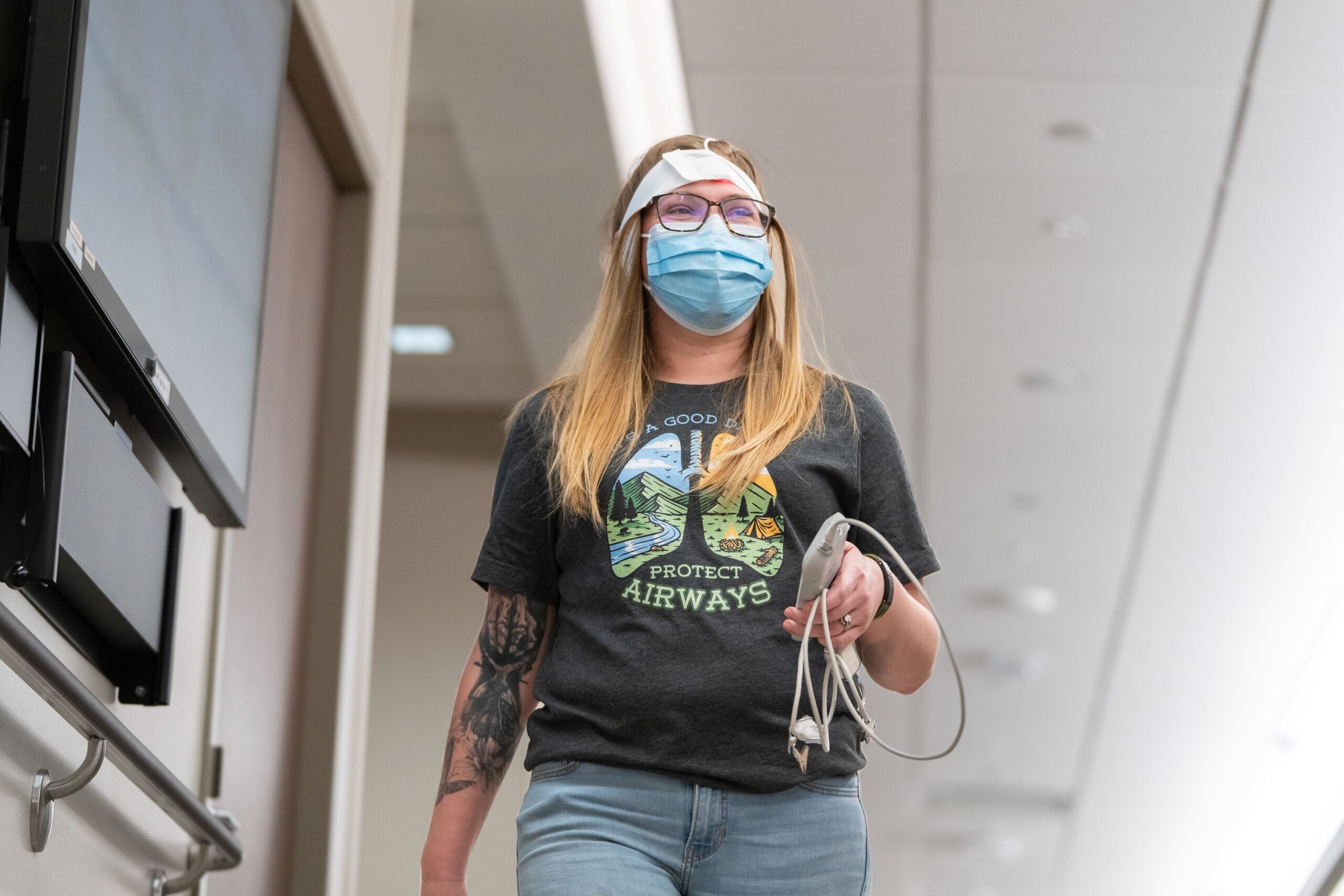The UW Health Transplant Center has transplanted 20,000 organs — making it the first program in the Midwest to surpass the milestone, according to the center.
It happened on Feb. 20 when Gary Grosklaus of Wisconsin Rapids underwent a simultaneous pancreas-kidney transplant. He was living with high blood pressure and diabetes for years which led to deteriorating kidneys.
The surgery he underwent can eliminate both kidney failure and diabetes with one operation. For Grosklaus, that means no more daily insulin injections or trips to a dialysis center three times a week.
News with a little more humanity
WPR’s “Wisconsin Today” newsletter keeps you connected to the state you love without feeling overwhelmed. No paywall. No agenda. No corporate filter.
Grosklaus said his health immediately felt a difference.
“My body feels good. Everything’s functional,” he said. “I was weak before my surgery. Now my (strength) is coming back now, but I’m still healing from my surgery.”
The renewed strength was a long time coming. Grosklaus said he waited on the transplant list for almost two years.
He celebrated his 57th birthday just weeks after his surgery. He said he’s looking forward to having more time with his mom, brother and nephews and returning to work before he can retire.
‘A new lease on life’
UW Health is the fourth hospital in the nation to complete 20,000 transplants. That’s according to Melissa Roberts, the executive director of the UW Health Transplant Center. UCLA Health, UCSF Health and the UPMC health care system were the first hospitals to hit the milestone, respectively.
As of Feb. 20, the day of Grosklaus’ surgery, physicians at UW Health had transplanted 12,402 kidneys, 3,167 livers, 1,971 pancreases, 1,449 lungs, 981 hearts and 30 intestines.
Roberts said she was thrilled to hear the center hit the milestone sooner than she expected.
“That gift of life is really a new lease on life. It is a gift of time, it is a gift of more memories with their family,” she said.
More organ donations needed
April is National Donate Life Month which aims to spread awareness about organ, eye and tissue donation and honor donors.
Currently, there are more than 100,000 adults and children awaiting organ transplants in the United States. In Wisconsin at least 1,607 organs are waiting to be replaced according to the Organ Procurement and Transplantation Network.
More than 46,000 transplants were performed in 2023. Organizations aim to complete up to 60,000 deceased donor transplants annually by 2026 by making transplants more efficient.
Grosklaus said his new organs came from a deceased donor. He said he has both deep sympathy for the donor’s family and more gratitude than he can articulate.
“I feel sorry for the family losing a person but part of them (is) still living on,” Grosklaus said.
Roberts said patients say a transplant feels like they have new batteries put in.
“You don’t realize how bad you feel until you feel better again,” she said.
A single organ donor can save up to eight lives and a single tissue donor can help more than 75 people. Roberts encourages people to consider organ donation. She said it’s best practice for families to discuss their wishes.
“If they don’t know, it really can be a very difficult thing to think about and try to imagine what their loved one would have wanted,” Roberts said.
Transplant science continues to improve
It’s been more than 50 years since surgeons performed the first kidney transplant at UW Health in 1966. Roberts said the field has changed significantly since then.
Now there’s technology to improve the function of a donor organ before it is transplanted.
“We can really provide that legacy to our donor families and use every possible gift that they have allowed their loved one to donate,” she said.
She hopes science continues to advance. One goal is to use gene-edited organs from animals, so organs don’t have to come to another human which could shorten the waiting list.
There are opportunities to become a registered organ, tissue and eye donor and learn more about living donations.
Wisconsin Public Radio, © Copyright 2026, Board of Regents of the University of Wisconsin System and Wisconsin Educational Communications Board.





